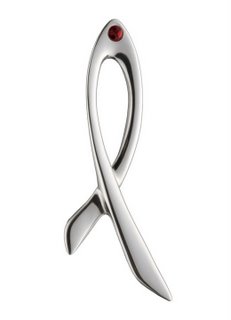
World AIDS Day is an annual health campaign aimed at raising global awareness of HIV and AIDS. As well as tackling the stigma and ignorance that continues to surround HIV and AIDS, organizations such as the National AIDS Trust aim to highlight the fact that no one has been cured - despite recent advances in HIV drug treatments.
About HIV and AIDS
HIV is one of the biggest social, economic and health challenges in the world. It is a global emergency claiming over 8,000 lives every day. In fact 5 people die of AIDS every minute. HIV stands for Human Immunodeficiency Virus. This is the virus known to cause AIDS (Acquired Immune Deficiency Syndrome). If someone is HIV-positive, it means they have been infected with the virus.
A person infected with HIV does not have AIDS until the virus seriously damages their immune system, making them vulnerable to a range of infections, some of which can lead to death. HIV is transmitted through body fluids in particular blood, semen, vaginal secretions and breast milk, in fact there are only four ways you can become HIV positive.
In 2005, over 3 million people acquired HIV, which means there are now over 40 million people living with HIV and AIDS. Despite best efforts from governments, non-profit organisations and healthcare practitioners around the world, HIV and AIDS is still having huge global impact. In the UK, there are fewer people dying of AIDS but incidences of HIV in the UK. With testing and proper treatment, through anti-HIV drugs, many people in the UK are now able to halt or delay the damage caused by HIV.
How is HIV transmitted?
You can become infected with the HIV virus if you have unprotected vaginal or anal sex (without a condom), or share a needle with a person who is HIV positive. The HIV virus lives in blood, sperm and vaginal fluid.
Other routes of transmission for HIV include HIV-infected blood product or donated organs, and from mother to baby (a women who is HIV-positive may pass on the virus to her unborn child during pregnancy or birth, or while breastfeeding). It's important to point out, however, that there are a number of steps a pregnant woman can take to reduce the chance of passing on HIV to her child, and blood products and donated organs are routinely tested for HIV in the UK. HIV can't be transmitted through kissing, cuddling, shaking hands, insect or animal bites, using a public toilet or swimming pool, or by sharing food or drink.
Diagnosis and treatment
HIV is usually diagnosed using a blood test that detects antibodies to the virus. It may take up to 12 weeks after infection for these antibodies to be made, so an HIV test may initially be negative. However, all children born to infected mothers receive some of their mother's antibodies to HIV across the placenta. These may persists for up to 18 months, making antibody tests inaccurate. Newer blood tests can detect tiny quantities of the virus in the infant's blood, giving an accurate diagnosis in about 95 per cent of HIV-infected infants by three months of age.
AIDS is defined as a positive test for HIV combined with either an opportunistic infection (an infection that only occurs when your immune system isn't working properly, such pneumocystis carinii pneumonia) or an abnormally low level of a type of white blood cell called a CD4 lymphocyte (a count of 200 or less is abnormal - normal levels range from 600 to 1,000). Drug treatments, using a combination of several drugs known as highly active antiretroviral therapy, have greatly improved the outlook in AIDS. But drugs can't cure the infection and side effects and drug resistance are still a major problem. Other therapies can greatly improve quality of life.
Prevention
The risk of transmission of the HIV virus from a mother to her child can be greatly reduced by using a combination of antiviral drugs. Choosing an elective caesarean delivery and, when possible, avoiding breastfeeding may also help to reduce the risk.

